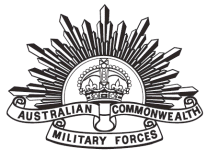
| Regimental number | 2034 |
| Place of birth | Liverpool, England |
| Religion | Church of England |
| Occupation | Seaman |
| Address | Union Hotel, Kent Street, Sydney, New South Wales |
| Marital status | Single |
| Age at embarkation | 18 |
| Height | 5' 1.5" |
| Weight | 102 lbs |
| Next of kin | Father, Thomas Jones, 6 Middlesex Road, Bootle, Liverpool, England |
| Previous military service | Nil |
| Enlistment date | |
| Date of enlistment from Nominal Roll | |
| Place of enlistment | Casula, New South Wales |
| Rank on enlistment | Private |
| Unit name | 31st Battalion, 3rd Reinforcement |
| AWM Embarkation Roll number | 23/48/3 |
| Embarkation details | Unit embarked from Melbourne, Victoria, on board HMAT A70 Ballarat on |
| Rank from Nominal Roll | Private |
| Unit from Nominal Roll | 23rd Battalion |
| Fate | Returned to Australia |
| Discharge date | |
| Other details |
War service: Egypt, Western Front Disembarked Suez, 23 March 1916. Transferred to 31st Bn, 8 April 1916. Found guilty, Moascar, 15 June 1916, of using obscene language, 11 June: awarded 4 days' confined to camp. Embarked Alexandria to join the British Expeditionary Force, 16 June 1916; disembarked Marseilles, 23 June 1916. Admitted to 8th Field Ambulance, 9 August 1916 (exhaustion); transferred same day to 15th Field Ambulance; to Divisional Rest Station, 9 August 1916; discharged to and rejoined unit, 17 August 1916. Found guilty, 4 September 1916, of being absent from Tatto Roll Call, 3 September: admonished. Temporarily detached to 5th Division Signal Company, 13 December 1916. Admitted to 21st Casualty Clearing Station, 24 January 1917 (nervous shock); transferred by Ambulance Train to 13th General Hospital, Boulogne, 27 January 1917; to No 1 Convalescent Depot, 28 February 1917; discharged to 5th Australian Division Base Depot, Etaples, 1 March 1917; transferred to 1st Australian General Hospital, Rouen, 26 April 1917 (under age). Found guilty, Rouen, 5 May 1917, of (1) being absent without leave from Camp, 1 pm, 2 May, to 6.30 am, 3 May 1917; (2) breaking Camp; (3) failure to appear on Parade for Orderly room after being warned; (4) breaking Camp: awarded (1) 144 hours' Field Punishment No 2; (2) 8 days' Field Punishment No 2; (3) 96 hours' Field Punishment No 2; (4) 10 days' Field Punishment No 2; and forfeited 11 days' pay. To detention, 5 May 1917; rejoined unit from detention, 14 May 1917. Found guilty, 31 July 1917, of being absent from Tattoo Roll Call, 30 July 1917: awarded 9 days' confined to barracks. Found guilty, 17 September 1917, of neglect to obey a Regulation Order to wit: appearing on a parade without a dress belt: awarded 4 days' confined to Camp. Transferred to England, and marched in to Army Medical Corps Training Depot, 23 September 1917. Marched out to No 1 Command Depot, Sutton Veny, 8 November 1917. Found guilty, 15 November 1917, of being absent from 7.30 am parade, 13 November: awarded 11 days' Field Punishment No 2. Marched out to AMC training Depot, 20 November 1917. Marched in to 1st Australian Dermatological Hospital, Bulford, 22 November 1917, for instruction in early treatment. Found guilty, 3 December 1917, of being at Salisbury without a pass on 30 November 1917: awarded 3 days' confined to barracks. Marched into No 4 Command Depot, Hurdcott, 1 January 1918. Found guilty, 31 December 1917, of being absent without leave from noon, 24 December, until he surrendered to the Military Police at Dinton Railway Station at 8.30 pm on 28 December 1917: awarded forfeiture of 12 days' pay; total forfeiture: 17 days' pay. Found guilty, 9 May 1918, of being absent without leave from 2200, 7 May, until 1600, 8 May 1917: awarded 4 days' Field Punishment No 2, and forfeited 6 days' pay. Found guilty, 15 May 1918, of neglect of Standing Order of 22.10.17 in that he did trespass on private property under cultivation near Tidworth on 15 May 1918 about 6.15 pm and was not in possession of his pay book or identity disk: awarded forfeiture of 4 days' pay. Found guilty, 21 May 1918, of being absent without leave from 2400, 19 May, to 2100, 20 May 1918: awarded 7 days' Field Punishment No 2, and forfeited 8 days' pay. Found guilty, 5 July 1918, of being absent from 0630 parade on 5 July: awarded forfeiture of 1 day's pay. Admitted to 1st Australian Dermatological Hospital, Bulford, 30 July 1918; discharged, 1 August 1918; total period of treatment for venereal disease: 3 days. Marched in to AMC Training Depot, 17 September 1918; to No 1 Command Depot, 28 September 1918. Found guilty, 10 October 1918, of being absent without leave from 1159 pm, 4 October, to 6 pm, 7 October 1918: awarded 9 days' Field Punishment No 2. Proceeded overseas to France to reinforce 23rd Bn, 30 October 1918; taken on strength, 3 November 1918. Admitted to 6th Australian Field Ambulance, 3 December 1918, for Wasserman; transferred same day to 41st Casualty Clearing Station, and thence by Ambulance Train to 1st Stationary Hospital, Rouen, 5 December 1918; to 39th General Hospital, Havre, 7 December 1918; to Convalescent Depot, 12 December 1918; rejoined unit, 2 January 1919. Found guilty, 16 January 1919, of absenting himself from Guard mounting, 15 January, after being duly warned: awarded 7 days' Field Punishment No 2, and forfeited 7 days' pay. Detached to Education Course, 5 February 1919; rejoined unit, 11 March 1919. Marched out to England, 11 April 1919; marched into No 2 Group, 12 April 1919. Commenced return to Australia from Devonport, on board 'Rio Negro', 25 September 1919; disembarked Sydney, 25 July 1919; discharged, 16 September 1919. Total war service: 1369 days (of which 888 days were abroad) Medals: British War Medal, Victory Medal |